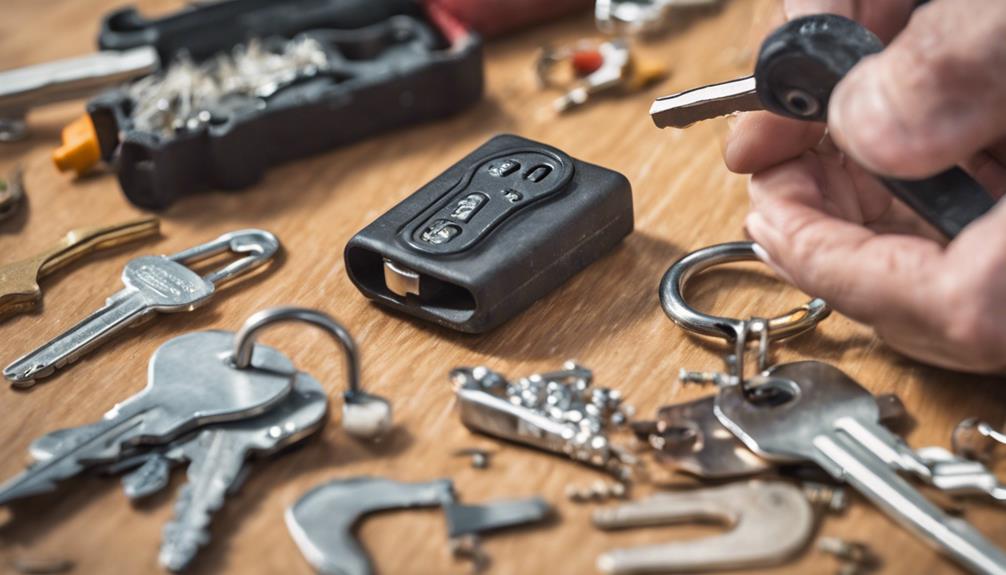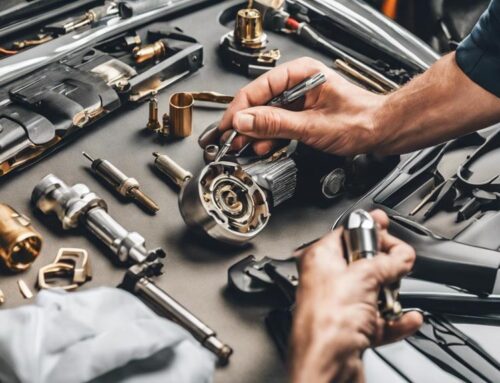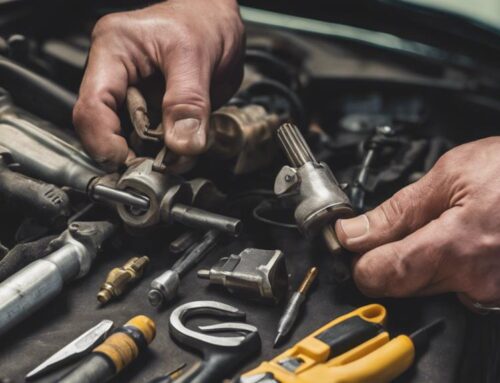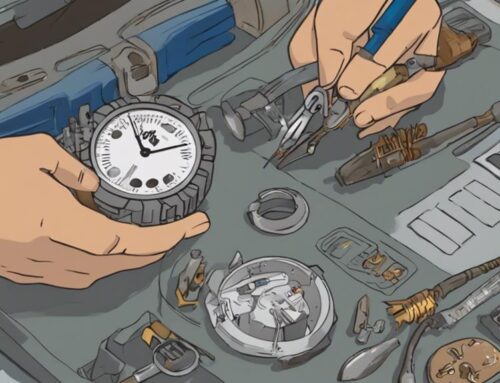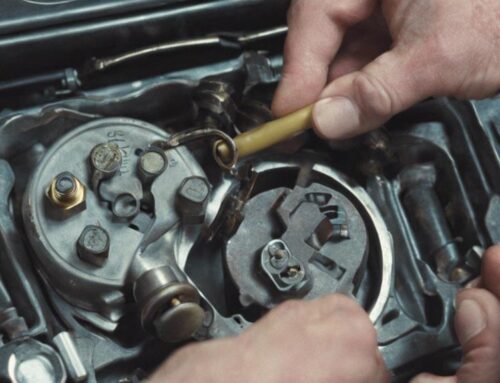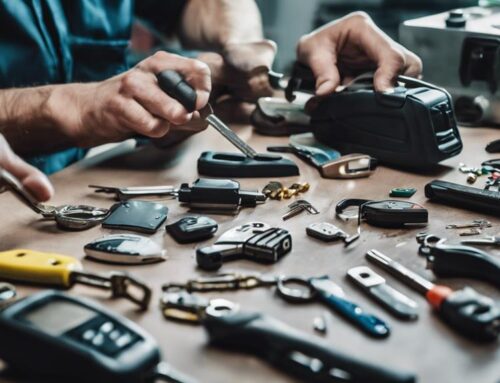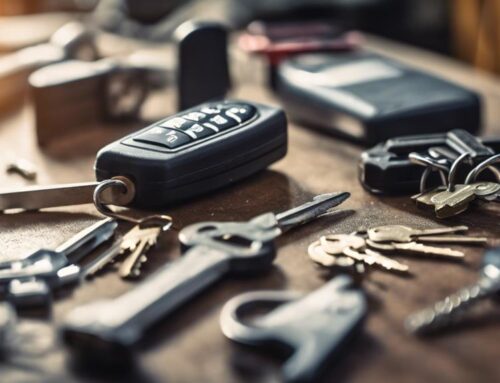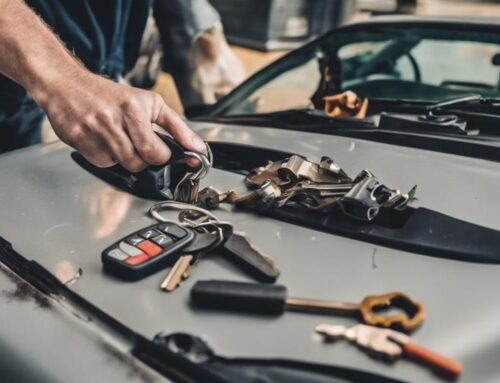When deciding whether to change a lock on your own or hire a locksmith, it is vital to weigh the pros and cons. DIY lock changing can save you money, provide a sense of achievement, and enhance your skills. However, it comes with risks like potential damage, security vulnerabilities, and time-consuming challenges. While hiring a locksmith guarantees specialized expertise, efficiency, and warranty protection, it may cost more. Consider your comfort level with DIY projects, the complexity of the lock, and the security implications before making a choice. Remember that safety precautions, tool requirements, and expert advice play significant roles in successful lock changes.
Key Takeaways
- Consider DIY for cost savings and personal satisfaction.
- Hire a locksmith for expertise, security, and efficient service.
- Assess complexity of lock type and personal skills.
- DIY requires tools, safety precautions, and patience.
- Professional installation ensures warranty protection and peace of mind.
Pros of DIY Lock Changing
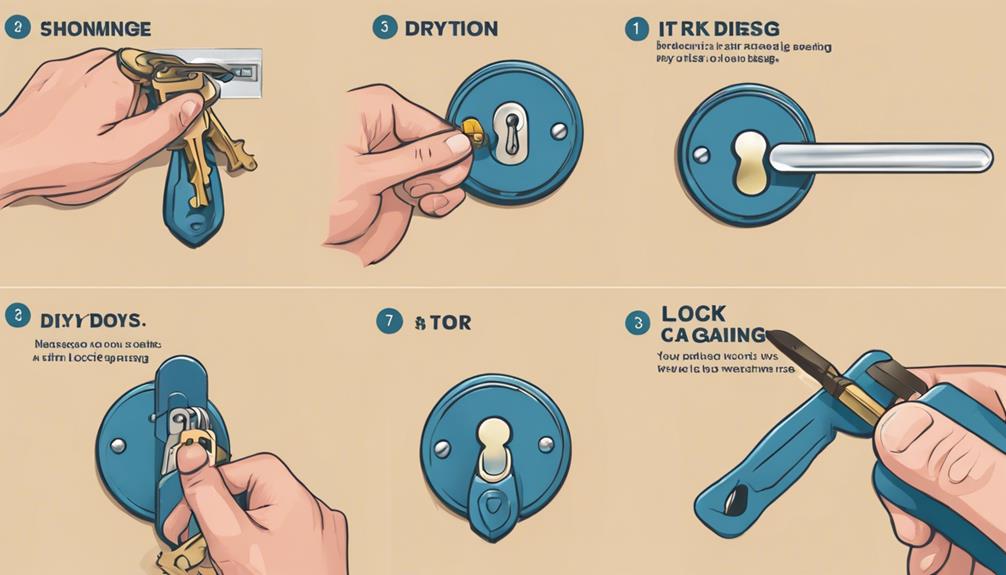
When contemplating whether to change a lock yourself or hire a locksmith, considering the pros of DIY lock changing can be beneficial. One significant advantage is the cost savings associated with tackling the task on your own. By opting to change the lock yourself, you can avoid the fees typically charged by locksmiths. Additionally, there is a sense of personal satisfaction that comes with successfully completing a DIY project. The feeling of accomplishment and independence that arises from completing a task like changing a lock can be quite rewarding, especially when you follow the guidelines outlined in Choosing the Right Lock Replacement for Your Home. So, if you're looking to save some money and enjoy the pride of a job well done, changing the lock yourself might just be the way to go!
Cons of DIY Lock Changing
When considering changing a lock yourself, it's important to be aware of the risks involved, such as potential damage to the lock or door. Without the expertise of a professional locksmith, you may encounter challenges that could lead to further complications. It's essential to weigh these factors before deciding whether to tackle the task on your own. Additionally, to avoid common errors in DIY lock replacement, it's recommended to refer to a guide that outlines these mistakes and how to prevent them Avoid Common Mistakes in DIY Lock Replacement.
Risks of DIY
Attempting to change a lock by yourself poses various risks that should be carefully considered before proceeding. While it may seem like a straightforward task, DIY lock changing can lead to some common mistakes such as improper installation, damaging the door or lock, and potential security vulnerabilities. Here are some risks to keep in mind:
- Improper Installation: Incorrectly installing a lock can lead to malfunctions and security issues. It's essential to recognize that Lock Replacement vs. Repair: Which Is Right for You can greatly impact the security of your property.
- Potential Damage: Mishandling tools or the lock itself can result in damage to the door or lock mechanism.
- Security Concerns: A poorly installed lock may not provide adequate protection, leaving your property vulnerable to break-ins.
Lack of Expertise
Changing a lock without the necessary expertise can lead to significant challenges and potential risks. When it comes to lock security, improper installation techniques due to lack of expertise can compromise the safety of your property. Without the right knowledge, you may not align the lock components correctly, leaving vulnerabilities that could be exploited by intruders. Additionally, using the wrong tools or techniques might damage the lock mechanism, leading to costly repairs or replacements. Locksmiths undergo training to understand the intricacies of different lock types and installation methods, ensuring a secure and properly functioning lock. So, unless you're a DIY expert in lock mechanisms, it's wise to avoid the headache and potential security risks by leaving lock changes to the professionals.
Tools Needed for DIY
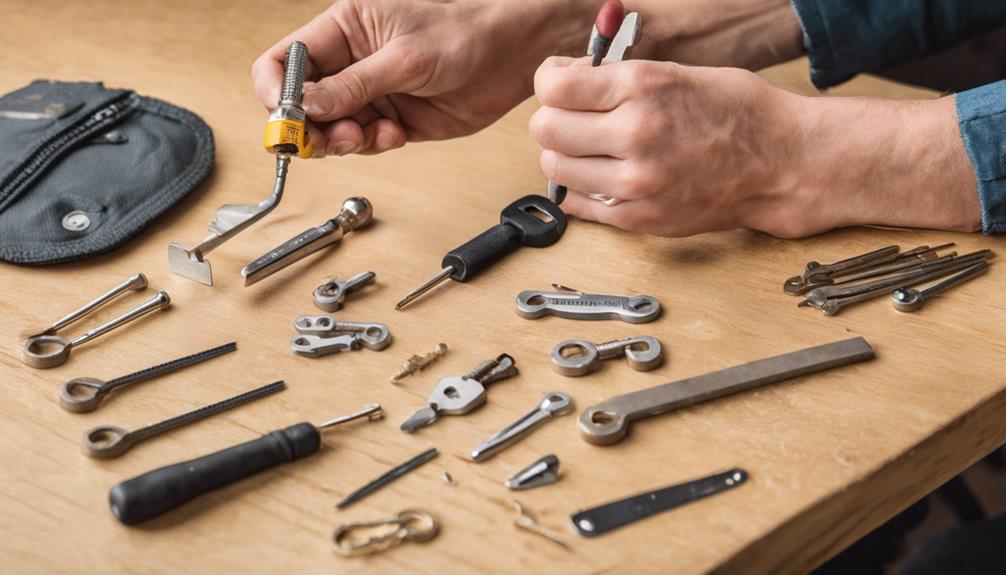
When considering changing a lock yourself, it's vital to have the right tools on hand. Essential items like a screwdriver, a replacement lock, and perhaps even a drill might be necessary. Additionally, ensuring you have the proper safety precautions in place before starting the DIY project is paramount to a successful and secure lock replacement. It is important to note that using the correct tools for lock replacement Choosing the Right Tools for Safe Lock Replacement reduces the risks of damaging the door or the new lock, ensuring a smooth and effective installation process.
Essential DIY Lock Tools
To successfully change a lock on your own, you will need a set of essential DIY lock tools. Here are the must-have items for your lock-changing adventure:
- Screwdriver: This versatile tool will help you remove the screws holding the old lock in place.
- Lock Installation Kit: A kit containing templates, hole saws, and guides will assist you in accurately installing different lock types. Additionally, having a comprehensive understanding of lock components can help you navigate the re-keying process more effectively.
- Tweezers: Perfect for delicate tasks like aligning small parts or retrieving fallen screws during the installation process.
With these tools in hand, you'll be well-equipped to tackle various lock types and installation techniques with confidence and maybe a touch of DIY swagger.
Safety Precautions for DIY
Before you commence your lock-changing endeavor, ensuring that proper safety precautions are in place is paramount. When tackling a DIY lock change, it's essential to have the right tools on hand to avoid any mishaps. Depending on the lock types and installation techniques involved, you may need tools like a screwdriver, a drill, pliers, and a tape measure. Make sure to wear protective gear, such as gloves and safety glasses, to prevent any accidental injuries. Additionally, keeping the work area well-lit and free of clutter can help you focus and work more efficiently. By taking these safety measures seriously, you can successfully change a lock on your own while keeping yourself safe and sound. Remember to refer to a detailed Mastering Deadbolt Replacement: A DIY Guide for additional step-by-step instructions.
Expertise Required for DIY
Replacing a lock on your own requires a certain level of expertise and skill to confirm it is done correctly and securely. When considering a DIY lock change, keep in mind the following:
- Familiarity with different lock types and their mechanisms is essential.
- Understanding installation techniques such as drilling, screwing, and aligning components is vital.
- Patience and precision are key to guarantee the lock functions smoothly and securely.
Risks of DIY Installation
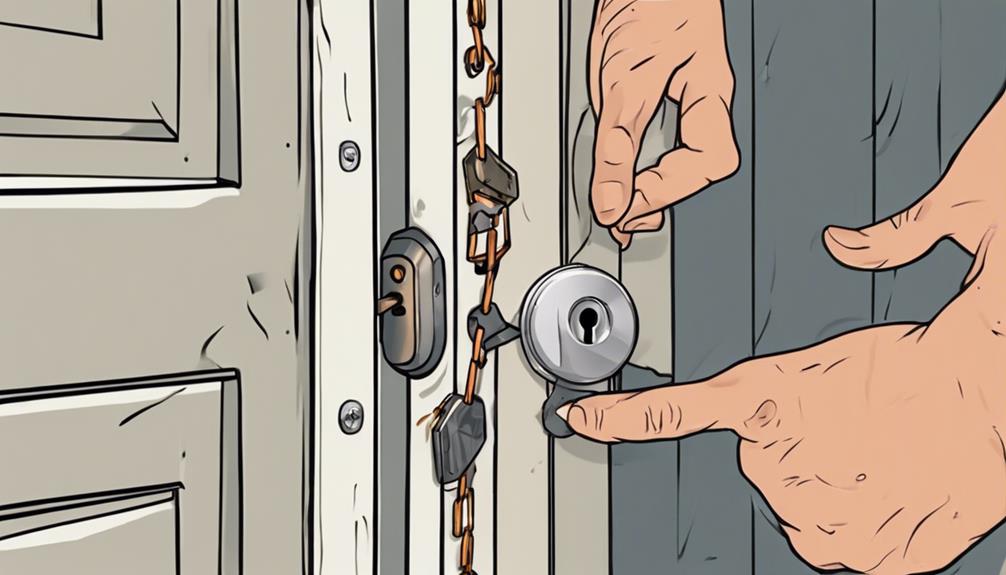
Changing a lock on your own demands a keen awareness of potential risks that come with DIY installation. Depending on the lock types and security features involved, you might encounter challenges such as improper installation leading to vulnerabilities, voiding warranties, or even damaging the door. Not all locks are created equal, and some may require specialized tools or knowledge that you might not possess. Imagine realizing halfway through the installation that you're in over your head – that's a locksmith's nightmare! Additionally, if the lock is not installed correctly, it could compromise the security of your home or office. So, while a DIY project can be rewarding, when it comes to your security, it might be best to leave it to the professionals.
Benefits of Hiring a Locksmith
When considering the benefits of hiring a locksmith, it is essential to recognize the expertise and precision they bring to the table. Locksmith services go beyond just changing locks; they offer professional advice and solutions tailored to your security needs. Here are some reasons why hiring a locksmith is advantageous:
- Specialized Knowledge: Locksmiths are trained professionals with in-depth knowledge of various types of locks and security systems.
- Efficiency: By hiring a locksmith, you can save time and effort, as they can quickly and accurately address your lock-related issues.
- Peace of Mind: Knowing that your locks have been handled by a skilled professional can provide a sense of security and peace of mind.
Hiring a locksmith can guarantee that your property's security is in good hands.
Expertise of Low Rate Locksmith
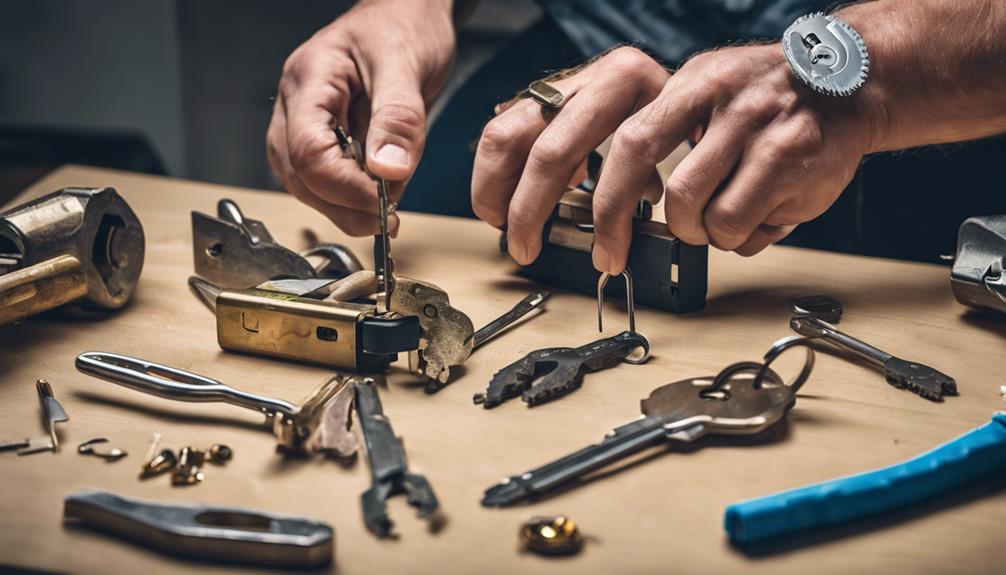
To further explore the domain of locksmith services, it's valuable to highlight the expertise that Low Rate Locksmith brings to the table. When considering locksmith qualifications, Low Rate Locksmith boasts a team of highly trained professionals with years of experience in the field. Their expertise guarantees that any lock-related issue you may have can be efficiently and effectively addressed. In addition, when it comes to cost considerations, Low Rate Locksmith offers competitive pricing without compromising on the quality of service provided. This means that you can trust them to deliver exceptional results without breaking the bank. So, if you're looking for a reliable locksmith service that combines skill, experience, and affordability, Low Rate Locksmith is the way to go.
Hassle-free Lock Change Process
Considering the need to enhance your home security swiftly and efficiently, opting for a hassle-free lock change process is crucial. When changing locks, understanding different lock types and following proper installation tips can make the process smoother. Here are some quick pointers to guarantee a hassle-free experience:
- Choose the Right Lock Type: Select a lock that suits your needs, whether it's a deadbolt, knob lock, or smart lock.
- Prepare Properly: Gather all necessary tools before starting the installation to avoid interruptions. It's also helpful to refer to a detailed guide like Secure Your Home: A Guide to Installing a Deadbolt for additional tips.
- Follow Installation Tips: Read the manufacturer's instructions carefully and double-check each step to verify the lock is installed correctly.
Conclusion: Making the Right Choice
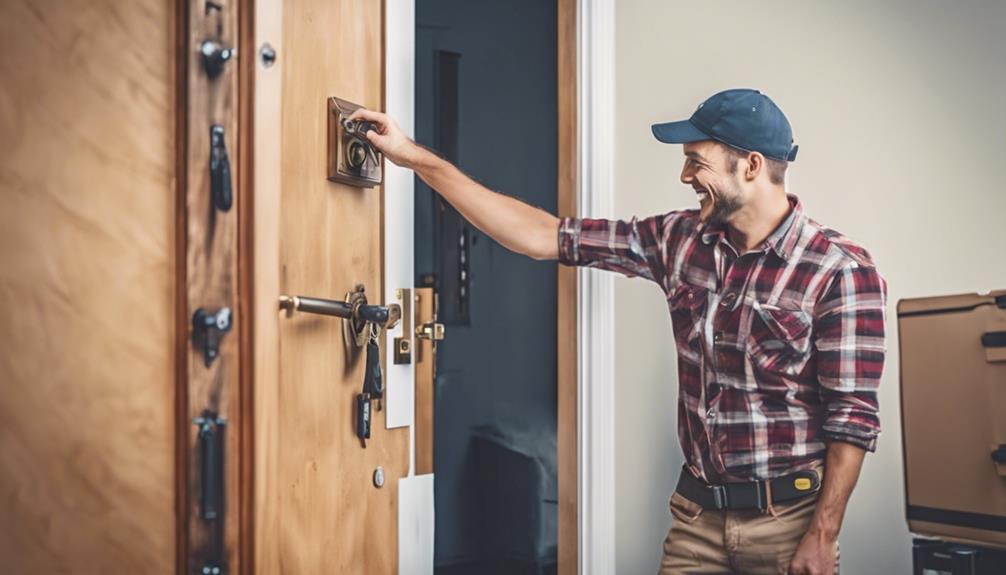
Opting between changing a lock yourself or hiring a locksmith ultimately boils down to your comfort level with DIY projects and the complexity of the task at hand. If you're handy with tools and enjoy a good challenge, DIY might be your jam. However, if the mere thought of a screwdriver makes you break out in a cold sweat, a locksmith could be your knight in shining armor. Consider the cost comparison – while changing a lock yourself may seem cheaper upfront, mistakes could end up costing more in the long run. Also, ponder the security implications; a professional locksmith guarantees your lock is installed correctly, providing peace of mind. Keep in mind that different types of locks may require specialized knowledge, so it's important to assess the situation before deciding whether to tackle the repair yourself or seek professional help. So, weigh your options carefully and make the choice that best suits your skills and needs.
Conclusion
In summary, when it comes to changing a lock, hiring a locksmith can provide peace of mind and guarantee the job is done correctly. Did you know that according to the FBI, there were over 1.1 million burglaries reported in the United States in 2019? By choosing a professional locksmith, you can enhance your home security and protect your property from potential threats. Make the right choice for your safety and security.

